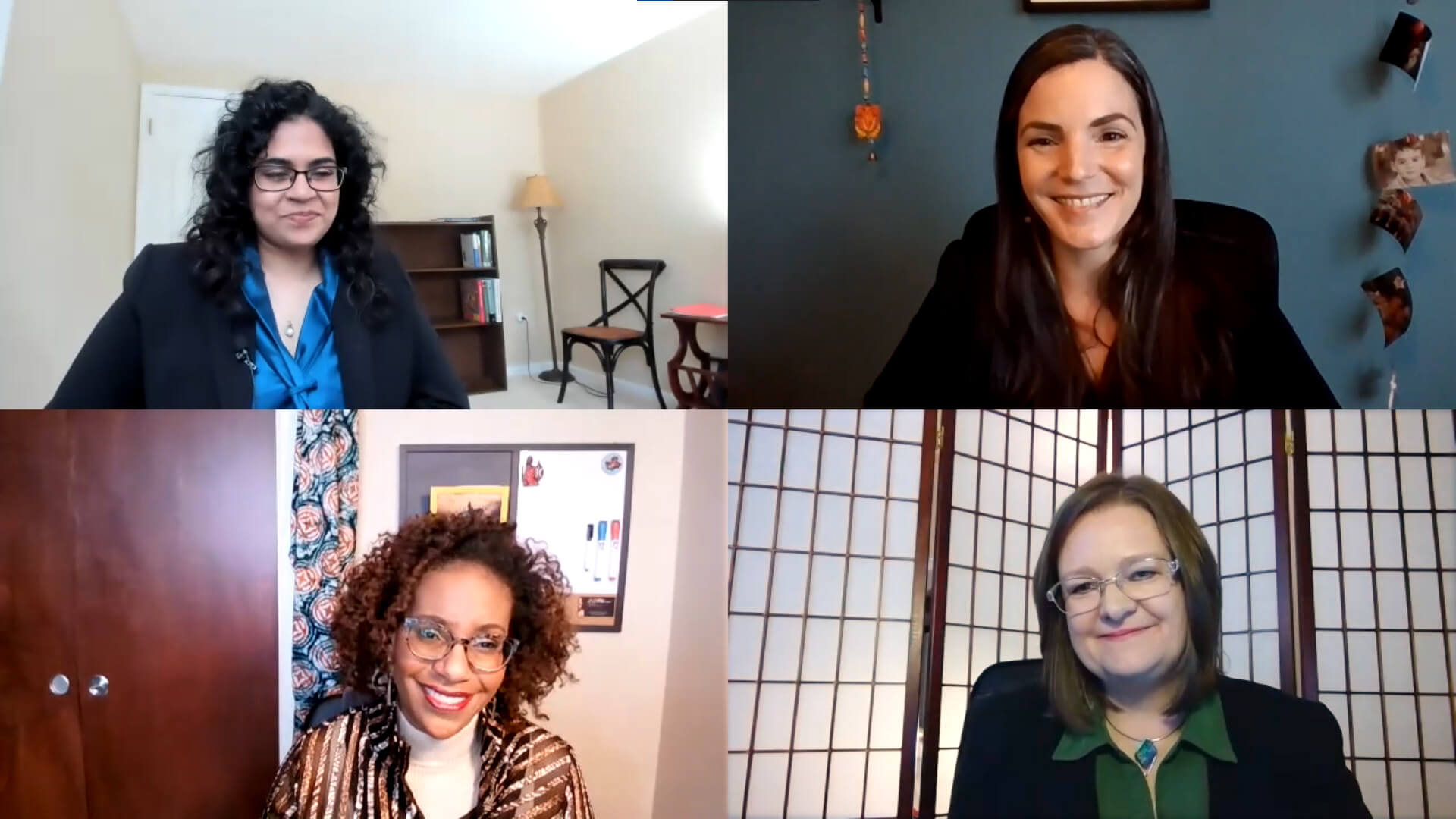BrightFocus Honors UN Women and Girls in Science Day
Written By: BrightFocus Editorial Staff
Written By: BrightFocus Editorial Staff

To celebrate the February 11 United Nations’ International Day of Women and Girls in Science, BrightFocus hosted a discussion featuring the three women leading its scientific grants program. The panelists were Diane Bovenkamp, PhD, Vice President of Scientific Affairs, Preeti Subramanian, PhD, Director of Vision Science Research, and Sharyn Rossi, PhD, Director of Neuroscience Research. The panel was moderated by Tonya M. Matthews, PhD, a biomedical engineer who is associate provost and STEM education leader at Wayne State University and a member of the BrightFocus Foundation Board of Directors.
Bovenkamp and Subramanian, biochemists, and Rossi, a neuroscientist, spoke about their respective “origin stories” as scientists, all mentioning an early interest and fascination with science that only grew over time. Subramanian, in particular, discussed how she was ultimately led to research despite initially thinking she would have a career in medicine. Both Bovenkamp and Matthews also have family history in science. A common thread of the BrightFocus team is they have broad experience in the lab working on different types of projects, so they are able to “talk the language of almost all of our scientists that we’re funding,” said Bovenkamp, which helps them encourage scientists of all kinds to “think beyond their disease silo” and develop innovative ideas.
Matthews noted how all three women are not just scientists, they are also leaders in charge of major research grants programs. BrightFocus is a premier source of private research funding to defeat Alzheimer’s, macular degeneration, and glaucoma, currently managing a global portfolio of over 220 scientific projects, a nearly $50 million investment.
Exploring why it is important to encourage young women to pursue science, Rossi spoke about how society up until this point has largely been run by men, and how society is now shifting and building infrastructure to empower women to be able to pursue careers in science. Bovenkamp added that these societal shifts are now allowing girls to actually consider science as a career and “not take themselves out of the running.” Subramanian also mentioned the importance of keeping an eye out for the right opportunities.
Bovenkamp discussed the dichotomy between the number of females who apply for early career awards versus established career investigator awards. The number of early career female applicants is around 50 percent while the number of advanced career female applicants falls to around 35 percent.
Matthews, who spoke of the critical need to bring in “new ideas and new perspectives” to spur innovation, asked the panel to give advice to young women interested in pursuing careers in scientific research. Their recommendations included finding a mentor, network with peers, advocate for yourself, and don’t give up on pursuing your passions.
BrightFocus Foundation is a premier global nonprofit funder of research to defeat Alzheimer’s, macular degeneration, and glaucoma. Since its inception more than 50 years ago, BrightFocus and its flagship research programs—Alzheimer’s Disease Research, Macular Degeneration Research, and National Glaucoma Research—has awarded more than $300 million in research grants to scientists around the world, catalyzing thousands of scientific breakthroughs, life-enhancing treatments, and diagnostic tools. We also share the latest research findings, expert information, and resources to empower the millions impacted by these devastating diseases. Learn more at brightfocus.org.
Disclaimer: The information provided here is a public service of BrightFocus Foundation and is not intended to constitute medical advice. Please consult your physician for personalized medical, dietary, and/or exercise advice. Any medications or supplements should only be taken under medical supervision. BrightFocus Foundation does not endorse any medical products or therapies.
Donate Now to Fund Critical Research
Your gift today can help drive innovation in Alzheimer's, macular degeneration, and glaucoma research. By donating, you’ll support life-changing research and provide valuable resources for those affected by these devastating diseases. Give now to fuel hope and bring us closer to finding cures.